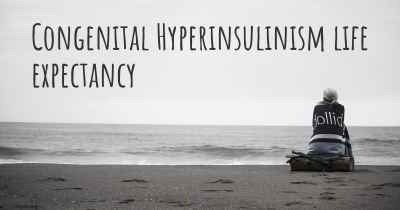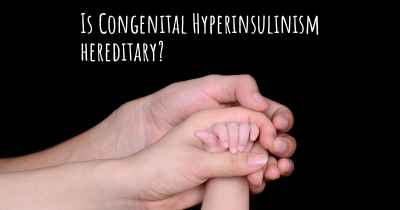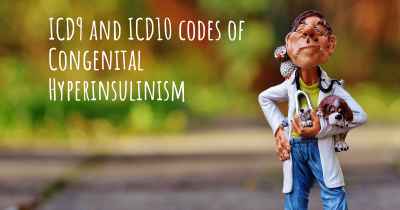What are the best treatments for Congenital Hyperinsulinism?
See the best treatments for Congenital Hyperinsulinism here

Congenital Hyperinsulinism (CHI) is a rare genetic disorder characterized by excessive insulin production in the pancreas. This condition leads to low blood sugar levels, which can cause various symptoms and complications. The treatment of CHI aims to control blood sugar levels and prevent long-term complications.
1. Medications: The first line of treatment for CHI involves the use of medications to manage blood sugar levels. Diazoxide is the most commonly prescribed medication for CHI. It helps reduce insulin production and increase blood sugar levels. If diazoxide is ineffective, other medications like octreotide or nifedipine may be considered.
2. Nutritional Management: Proper nutrition plays a crucial role in managing CHI. Infants with CHI may require frequent feedings to maintain adequate blood sugar levels. In some cases, a high-calorie formula or tube feeding may be necessary. It is important to work closely with a healthcare professional or dietitian to develop an appropriate feeding plan.
3. Continuous Glucose Monitoring (CGM): CGM devices are used to monitor blood sugar levels continuously. These devices provide real-time data, allowing healthcare providers to adjust medications and feeding plans accordingly. CGM helps in maintaining stable blood sugar levels and preventing hypoglycemic episodes.
4. Surgical Options: In severe cases of CHI that do not respond to medications, surgical intervention may be required. The two main surgical options are:
- Pancreatectomy: This procedure involves the partial or complete removal of the pancreas. It is considered when other treatment options fail to control blood sugar levels. However, pancreatectomy can lead to long-term complications such as diabetes and pancreatic insufficiency.
- Islet Cell Transplantation: Islet cell transplantation involves the infusion of healthy insulin-producing cells into the liver. This procedure is still considered experimental and is not widely available.
5. Genetic Counseling: Genetic counseling is an essential part of the management of CHI. It helps families understand the genetic basis of the condition, assess the risk of recurrence, and make informed decisions regarding family planning.
6. Supportive Care: CHI can have a significant impact on the affected individual and their family. Providing emotional support, connecting with support groups, and accessing resources can help cope with the challenges associated with CHI.
It is important to note that the treatment approach may vary depending on the severity of CHI and individual patient factors. Close monitoring and regular follow-up with healthcare professionals specializing in CHI are crucial for optimal management.








